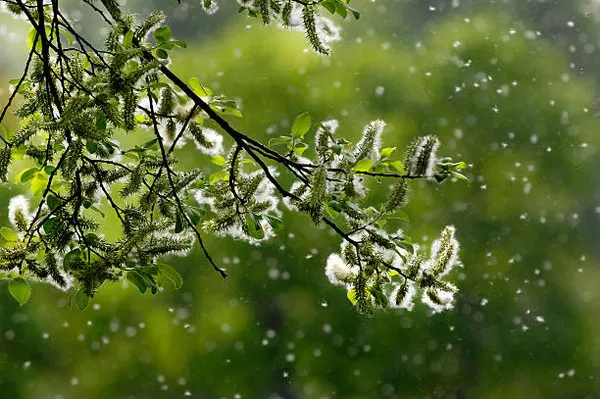As the seasons change and flowers bloom, many people look forward to enjoying the beauty of nature. However, for individuals with severe pollen allergies, the arrival of spring and summer can bring about distressing symptoms that interfere with daily life. From sneezing and itching to congestion and fatigue, pollen allergies can wreak havoc on both physical and emotional well-being. In this article, we’ll explore effective strategies for managing severe pollen allergies, offering insights, tips, and practical advice to help sufferers find relief and reclaim their quality of life.
Understanding Pollen Allergies: A Primer
Pollen allergies, also known as hay fever or allergic rhinitis, occur when the immune system overreacts to pollen particles released by trees, grasses, weeds, and other plants. When exposed to pollen, susceptible individuals may experience a range of symptoms, including:
1. Sneezing
2. Runny or congested nose
3. Itchy or watery eyes
4. Scratchy throat
5. Coughing
6. Fatigue
7. Headaches
8. Difficulty concentrating
For some people, pollen allergies can be more than just a seasonal nuisance—they can significantly impact daily activities, sleep quality, work productivity, and overall quality of life. Severe pollen allergies may also trigger asthma symptoms or exacerbate existing respiratory conditions, further complicating management and treatment.
Identifying Pollen Allergy Triggers
The first step in managing severe pollen allergies is to identify the specific triggers that exacerbate symptoms. While pollen from various plants can provoke allergic reactions, individuals may be more sensitive to certain types of pollen depending on their geographic location, time of year, and personal factors. Common pollen allergy triggers include:
Tree Pollen: Trees such as oak, birch, cedar, and maple are common sources of pollen allergens, with peak pollen seasons typically occurring in the spring.
Grass Pollen: Grasses such as Bermuda grass, timothy grass, and ryegrass release pollen during the spring and summer months, leading to seasonal allergies for many individuals.
Weed Pollen: Weeds such as ragweed, sagebrush, and pigweed are notorious for producing high levels of pollen, particularly in late summer and early fall.
By keeping track of pollen counts, monitoring symptoms, and identifying patterns of allergen exposure, individuals can better understand their specific triggers and take proactive measures to minimize exposure and alleviate symptoms.
Effective Strategies for Managing Severe Pollen Allergies
While it may not be possible to completely avoid pollen exposure, there are several strategies that individuals with severe pollen allergies can implement to reduce symptoms and improve quality of life. From environmental modifications to medical interventions, the key is to develop a comprehensive approach tailored to individual needs and preferences. Let’s explore some effective strategies for managing severe pollen allergies:
1. Monitor Pollen Counts:
Stay informed about local pollen forecasts and air quality reports, especially during peak pollen seasons. Limit outdoor activities on days when pollen levels are high, particularly during early morning and late afternoon when pollen concentrations tend to be highest.
2. Create a Pollen-Free Zone:
Designate a pollen-free zone in your home by keeping windows closed, using air conditioning with HEPA filters, and investing in an air purifier to remove airborne allergens. Consider using allergen-proof bedding covers and washing bedding regularly in hot water to minimize exposure to pollen while sleeping.
3. Practice Nasal Irrigation:
Nasal irrigation, also known as nasal douching or saline irrigation, can help flush out pollen and allergens from the nasal passages, providing temporary relief from congestion and inflammation. Use a saline solution or a neti pot to irrigate the nasal passages gently, following proper hygiene and safety guidelines.
4. Use Allergy-Friendly Landscaping:
Choose landscaping plants that produce minimal pollen and are less likely to trigger allergic reactions, such as flowering plants with low pollen counts or male cultivars that do not produce pollen. Opt for low-maintenance landscaping features that reduce the need for mowing, pruning, and other activities that can stir up pollen.
5. Wear Protective Gear:
When spending time outdoors, especially during peak pollen seasons, consider wearing a wide-brimmed hat, sunglasses, and a pollen mask or respirator to reduce exposure to airborne allergens. Shower and change clothes after outdoor activities to remove pollen from skin and clothing.
6. Explore Medication Options:
Over-the-counter and prescription medications can help alleviate symptoms of severe pollen allergies, including antihistamines, decongestants, nasal corticosteroids, and allergy shots (immunotherapy). Consult with a healthcare provider to determine the most appropriate medication regimen based on individual symptoms and medical history.
7. Consider Alternative Therapies:
Some individuals may find relief from severe pollen allergies through complementary and alternative therapies such as acupuncture, herbal supplements, and homeopathic remedies. While research on the efficacy of these treatments for pollen allergies is limited, they may offer additional symptom relief for some individuals.
8. Maintain Overall Health and Wellness:
Prioritize overall health and wellness by adopting a balanced diet, engaging in regular physical activity, managing stress, getting adequate sleep, and avoiding smoking and excessive alcohol consumption. A healthy lifestyle can strengthen the immune system, reduce inflammation, and improve resilience to allergens.
Seeking Professional Guidance and Support
For individuals with severe pollen allergies, seeking professional guidance and support from allergists, immunologists, and other healthcare providers is essential for effective management and treatment. A comprehensive evaluation can help identify underlying triggers, develop personalized treatment plans, and explore additional interventions to address symptoms and improve quality of life.
In cases where pollen allergies coexist with other medical conditions such as asthma, eczema, or sinusitis, a multidisciplinary approach involving collaboration between healthcare providers may be necessary to address complex needs and optimize outcomes.
Conclusion: Empowering Individuals to Thrive Despite Pollen Allergies
In conclusion, severe pollen allergies can pose significant challenges for individuals striving to lead healthy, fulfilling lives. By understanding the triggers, implementing proactive strategies, and seeking appropriate support and treatment, individuals can effectively manage symptoms, minimize allergen exposure, and reclaim control over their health and well-being.
Through a combination of environmental modifications, medication interventions, lifestyle adjustments, and professional guidance, individuals with severe pollen allergies can navigate the pollen storm with resilience and determination. By empowering individuals to take proactive steps towards managing their allergies, we can help them thrive despite the challenges posed by seasonal allergens.
[inline_related_posts title=”You Might Be Interested In” title_align=”left” style=”list” number=”6″ align=”none” ids=”7102,7099,7041″ by=”categories” orderby=”rand” order=”DESC” hide_thumb=”no” thumb_right=”no” views=”no” date=”yes” grid_columns=”2″ post_type=”” tax=””]

































